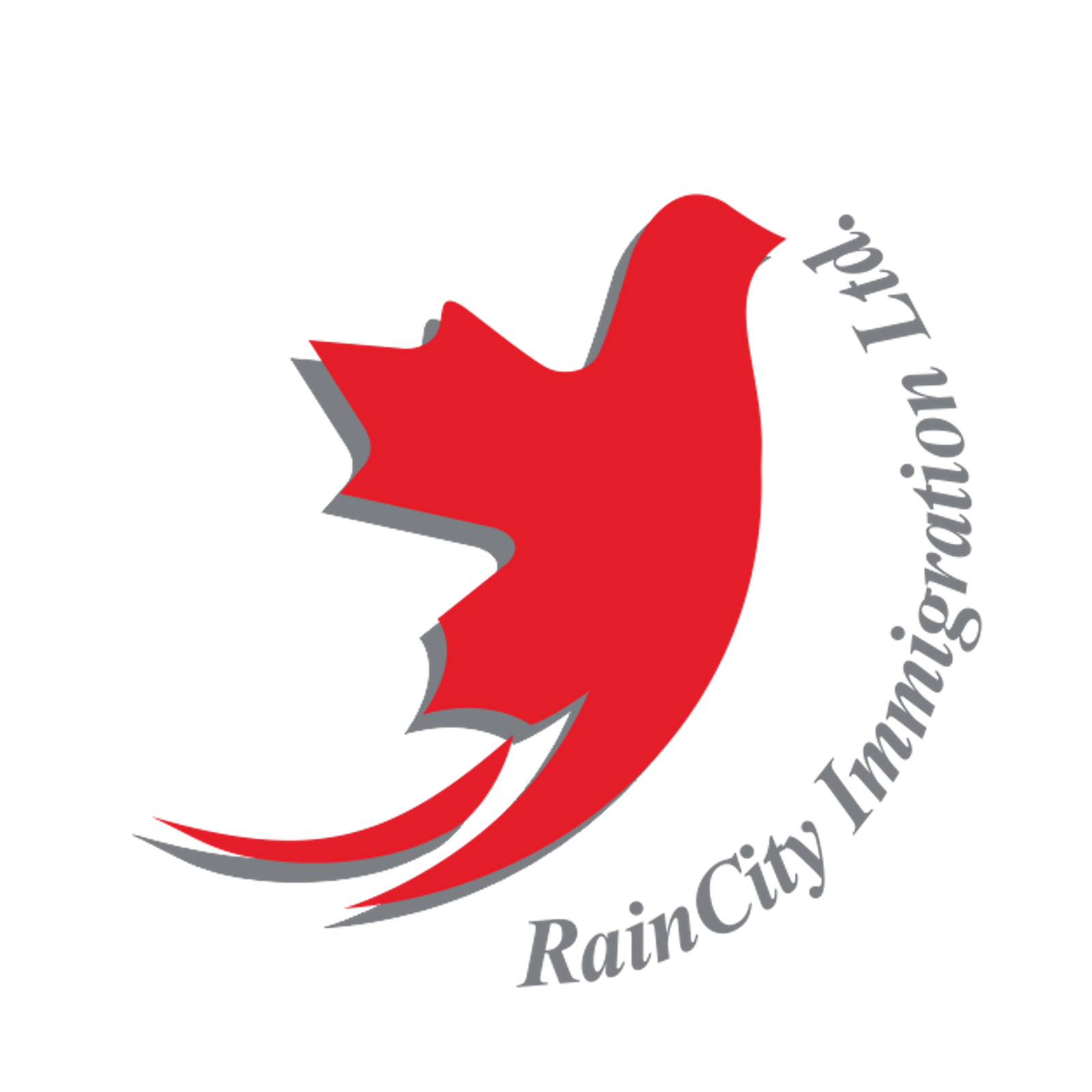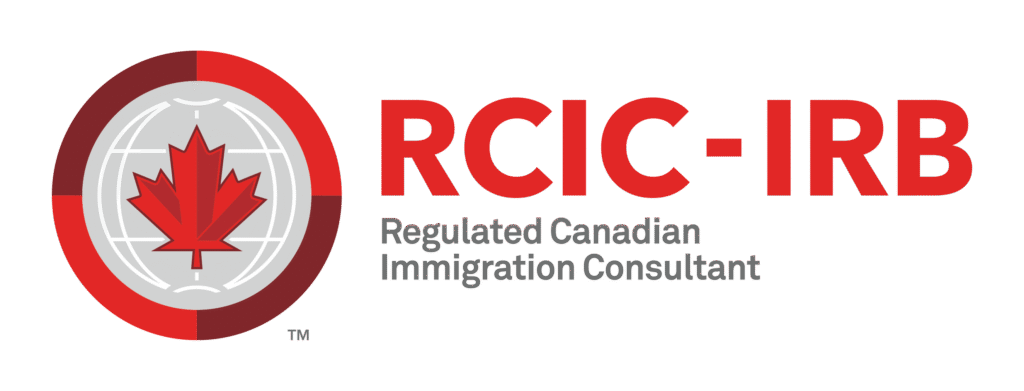Study in Canada
Admission and studying in Canada conditions + scholarship, visa and residence
Canada, as one of the advanced and developed countries in the world, has provided suitable opportunities for foreign students to study. In recent years, studying in Canada has become one of the main methods of immigration to this country
Every year, many students from around the world, aspiring to study in Canada and benefit from its advanced educational facilities, as well as to obtain permanent residency make their way to this vast country
If you are considering studying in Canada but do not have complete information on the subject, this article is a comprehensive guide to answer all your educational questions
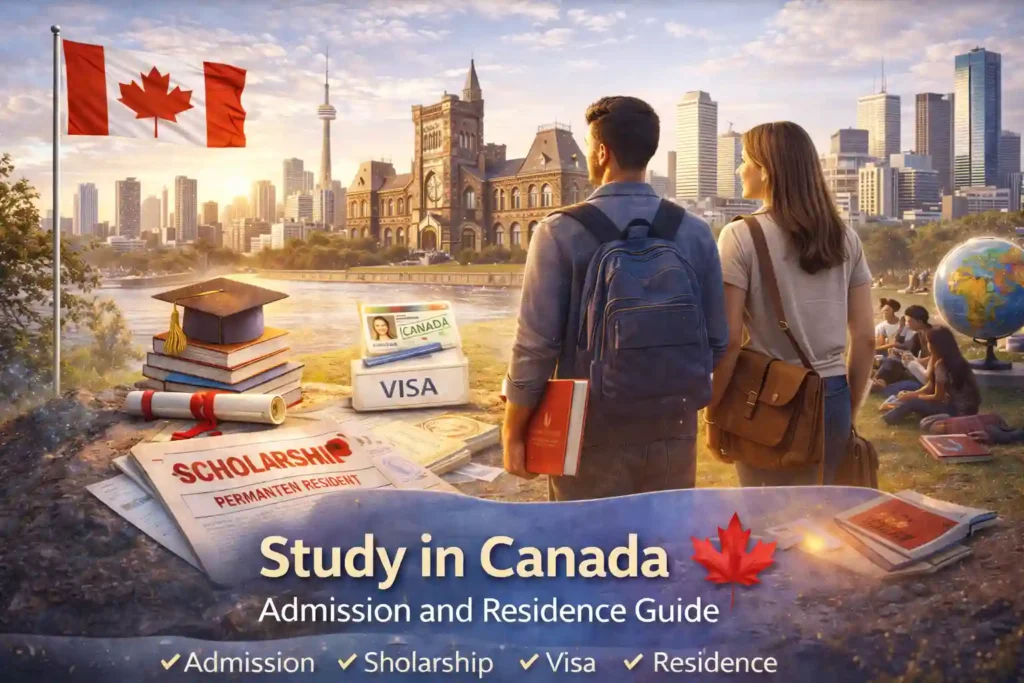
why should I choose Canada for studying?
Advanced education system
Leader in language education
Affordable education
Sport facilities
Research opportunities
Diversity of fields and universities
Easy residency acquisition
You can receive a scholarship
Work at the same time as studying
Rank 3 of the standard of living
Immigrant-friendly culture
Free education for children
Fast visa process
Advanced infrastructure
RainCity consultation
Conditions for studying in colleges and universities of Canada

College education in Canada
Colleges are institutions where the educational system is more practical and less theoretical. With a diploma, one can apply for academic programs in colleges
Duration of study: 1 to 2 years
Minimum GPA: 12 and above in diploma
Minimum language score: IELTS 6 to 6.5 or equivalent (conditional admission is possible)

Bachelor's degree studies in Canada
Bachelor's degree studies in Canada are the first level of university education. However, some colleges in the provinces of Alberta, British Columbia, and Ontario also offer bachelor's degree programs.
Duration of study: 3 to 4 years
Minimum GPA: 13 and above in high school diploma
Minimum language score: IELTS 6.5 or equivalent (conditional admission is possible)
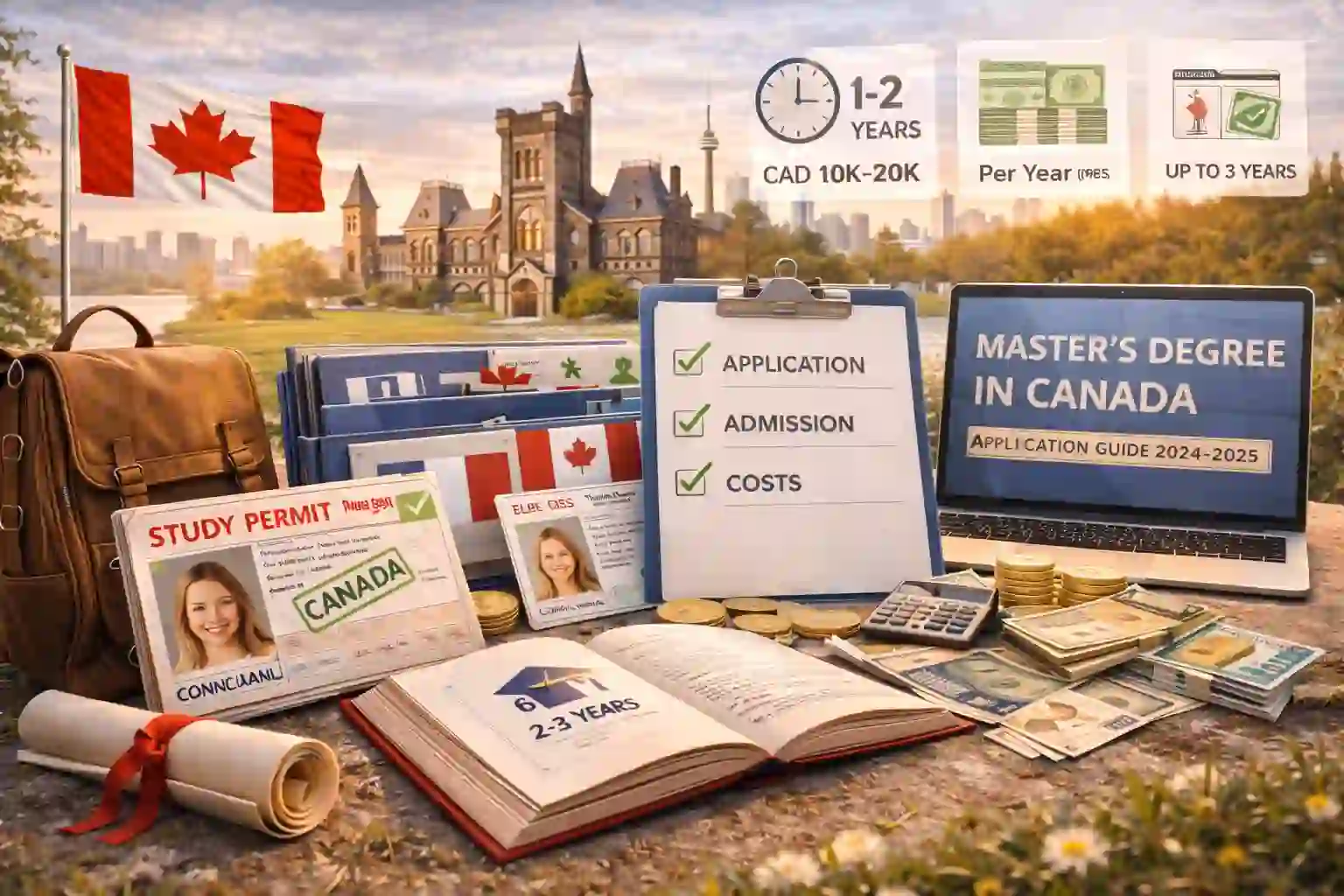
Master's degree studies in Canada
Master's programs in Canada are usually pursued to gain expertise in the field of study of the bachelor's degree, and they are offered either in a course-based format or a research-based format.
Duration of study: 1 to 2 years
Minimum GPA: 13 and above in bachelor’s degree
Minimum language score: IELTS 6.5 or equivalent (conditional admission is possible)
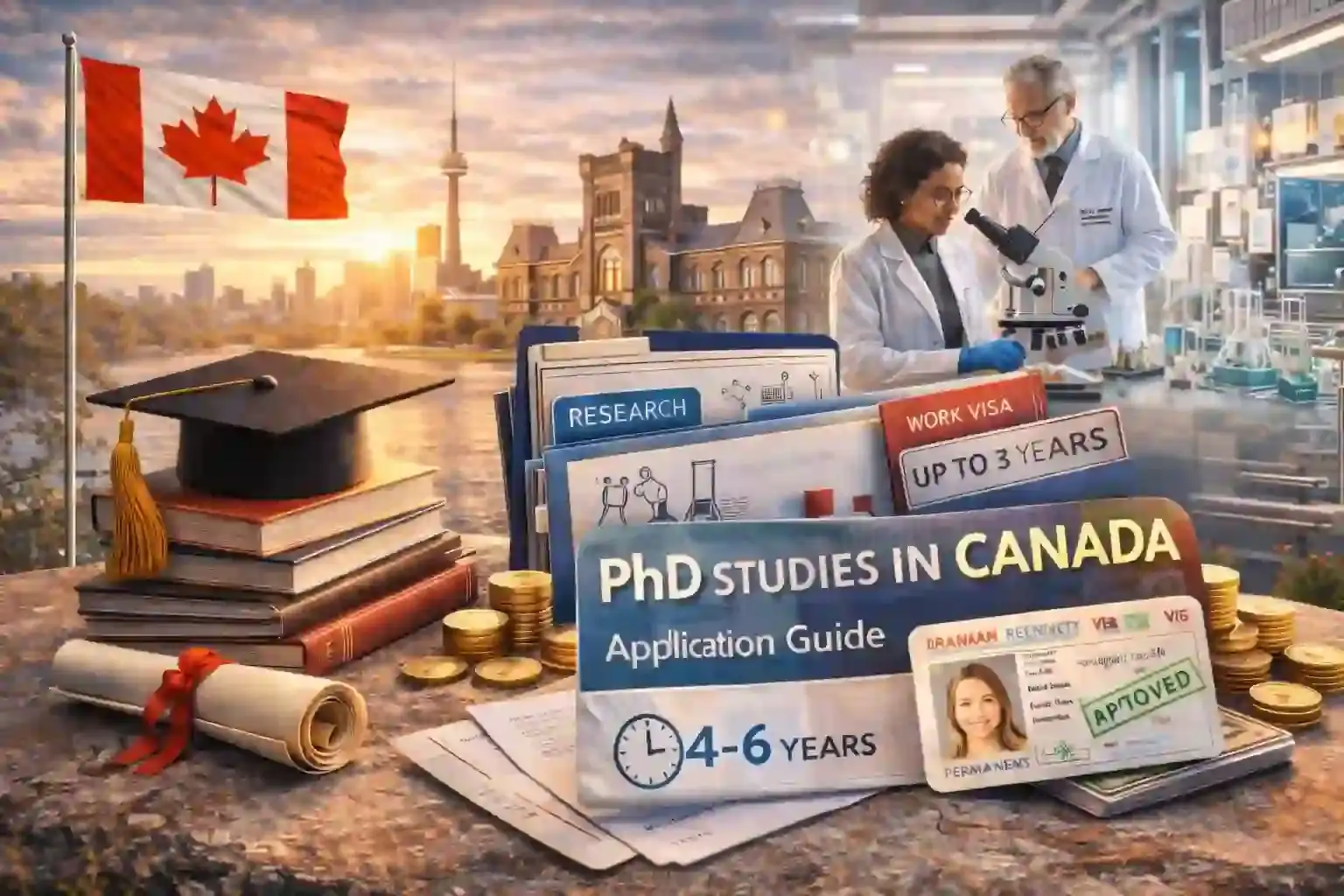
PhD studies in Canada
Pursuing a PhD in Canada is possible after completing a master's degree. PhD programs are usually research-oriented and require the selection of a supervisor.
Duration of study: 3 to 5 years
Minimum GPA: 15 and above in master’s degree
Minimum language score: IELTS 6.5 or equivalent
why should I choose Canada for studying?
Canadian universities
In Canada, both private universities and public universities attract international students. Naturally, each university has set different admission requirements for students based on its ranking and competition
Canadian colleges
College programs in Canada are related to courses that focus more on preparing applicants for entering the job market. Therefore, colleges place less emphasis on theoretical subjects and pay more attention to practical and operational aspects
Studying in Canadian schools
Studying in day schools or boarding schools? Private schools or public schools? This decision is truly confusing. However, aside from this vital and impactful choice, the conditions for studying in Canadian schools are more or less the same. Unlike Iran, Canadian schools categorize students based on their age. Usually, schools have a chart that compares your age to determine which grade you should be in.
If your language proficiency is not sufficient, all schools have language enhancement programs that are sometimes free and sometimes available for a separate fee. The graduation system from schools in Canada is also different from that in Iran and is based on the credits earned in grades ten, eleven, and twelve of high school. You need to complete enough credits in school according to your desired field of study at the university.
Studying in Canadian schools
To obtain admission for elementary and high school levels in Canada, there is no requirement for language proficiency scores. Additionally, there is no minimum GPA set for admission to schools in Canada. However, having good grades in previous core subjects is important for academic admission. Some schools in Canada may also request interviews to assess the language proficiency level of students.
Legal guardian and companion
If children are under 18 years old and apply to study in Canada without their parents, they must be under the care and supervision of an adult in Canada. This person will act as the guardian or custodian of the student in Canada. The custodian must have permanent residency or a Canadian passport.
Canadian schools
School in Canada starts from ages 5 to 6 and lasts for 12 years from elementary to high school. These schools are commonly referred to as K-12. In the province of Quebec, it lasts for 11 years from elementary to high school, followed by 2 years of pre-university courses.
Canadian Student Visa
Every year, many students from around the world apply to study in schools in Canada. The first step in this process is obtaining a study admission from Canadian schools, and the next step is applying for a Canadian student visa. The Canadian student visa, which is essentially the study visa for school level, is the pathway for your child to immigrate to Canada. Through your child, you can also obtain a Canadian student dependent visa and immigrate to this country with them.
The cost of studying in Canada
The cost of studying in Canada varies depending on the type of program, duration of study, city, and educational institution. Some common costs are mentioned here on average.
Tuition fee
From 15,000 to 35,000 Canadian dollars per year
Place of residence
From 500 to 2700 Canadian dollars per month
health insurance
From 40 to 80 Canadian dollars per month
Visa and residence
Each person 150 Canadian dollars
Admission and Documents
Each person 125 Canadian dollars
Books and educational materials
From 35 to 40 Canadian dollars per month
Urban transportation
From 80 to 100 Canadian dollars per month
Food cost
From 250 to 300 Canadian dollars per month
Airplane ticket and travel
From 56 to 190 million tomans to Vancouver
Tuition fees for studying in Canada
Tuition fees for educational institutions in Canada vary depending on the level of study, field of study, and the university or educational center. Additionally, whether the institution is public or private, and whether it offers daytime or evening classes, also affects the tuition fees. Generally, the cost of studying at private or evening educational institutions is higher than that at public or daytime institutions.
Canada Scholarship
If your question is, "Can one receive a scholarship to study in Canada?" the answer is yes, and it is a positive response. Obtaining a scholarship is one of the ways to study for free or reduce tuition fees in Canada, which is also available to international students. However, getting a scholarship in Canada is not easy and largely depends on the academic conditions of each individual.
Cost of living in Canada
Consider that about 60% of the cost of living in Canada is for rent. Taking into account rent and food expenses in Canada, as well as other additional costs like transportation, on average, for smaller cities, the cost of student living in Canada should be estimated at around 1,000 to 1,500 dollars per month, and in larger cities, 1,500 to 2,500 dollars.
Financial capability for Canada
You must have the ability to support at least one year of tuition fees and one year of living expenses in Canada, which averages between 25,000 to 45,000 dollars. Naturally, if you are married, you should also calculate the expenses for your dependents for one year.
Obtaining Canadian visa and study residence
We have reached the most important part of the student visa process for Canada: the visa! Yes, the Canadian visa is the most crucial and sensitive part of your project. There are certain conditions required to obtain a Canadian study permit, which we have explained in the articles below.
Additionally, half of international students stay in Canada after graduation, find jobs, and obtain permanent residency. To get permanent residency in Canada after studying, you can apply through several federal and provincial methods, which we will explain in the following article.
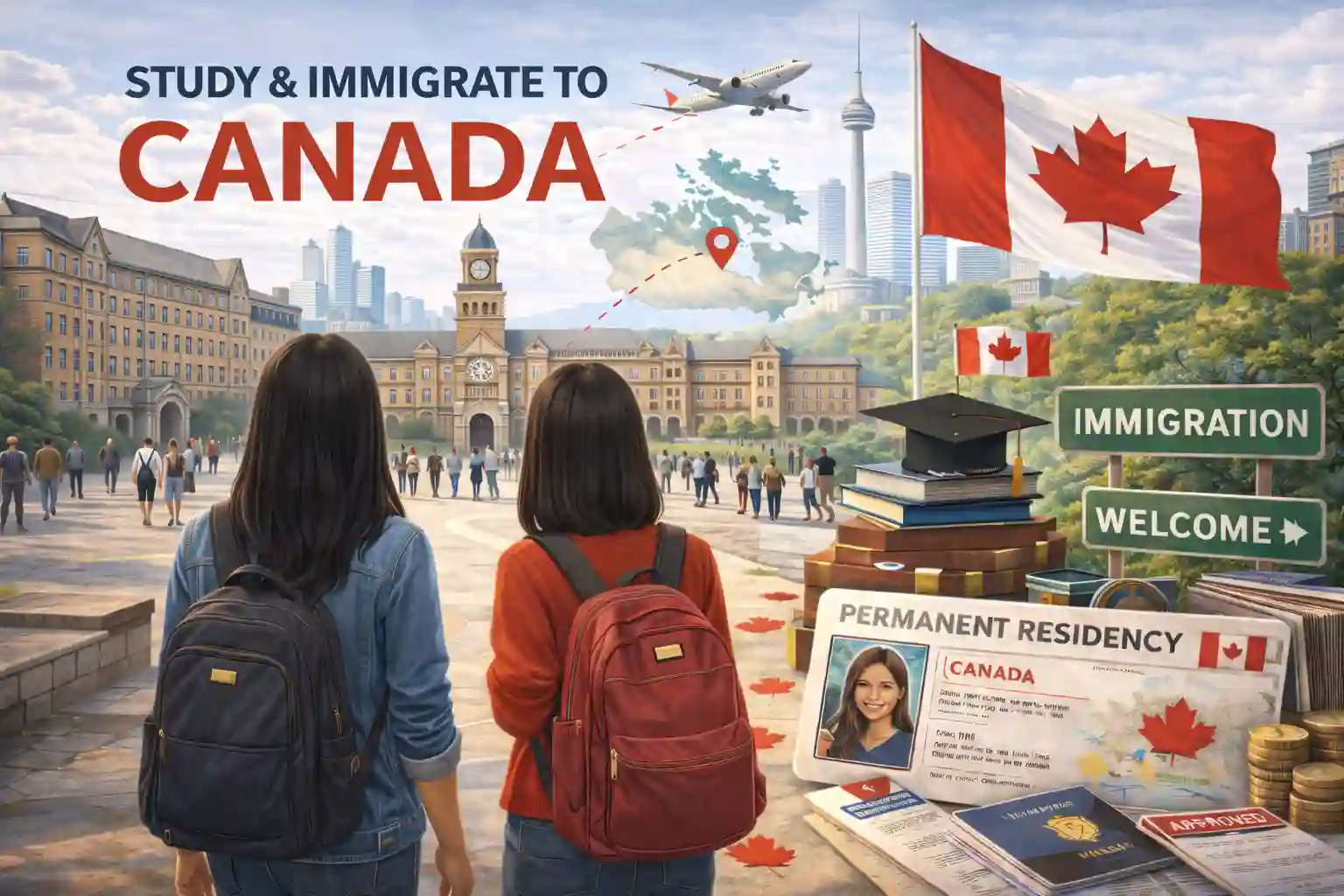
Canadian student visa
To obtain a study visa for Canada, certain conditions are required, which we will outline below
Having an acceptance from educational institutions in Canada
Providing sufficient financial means
Demonstrating ties and sufficient connection to the home country
Convincing the officer to return to the home country
Completing documents and forms
No criminal record
Being physically healthy
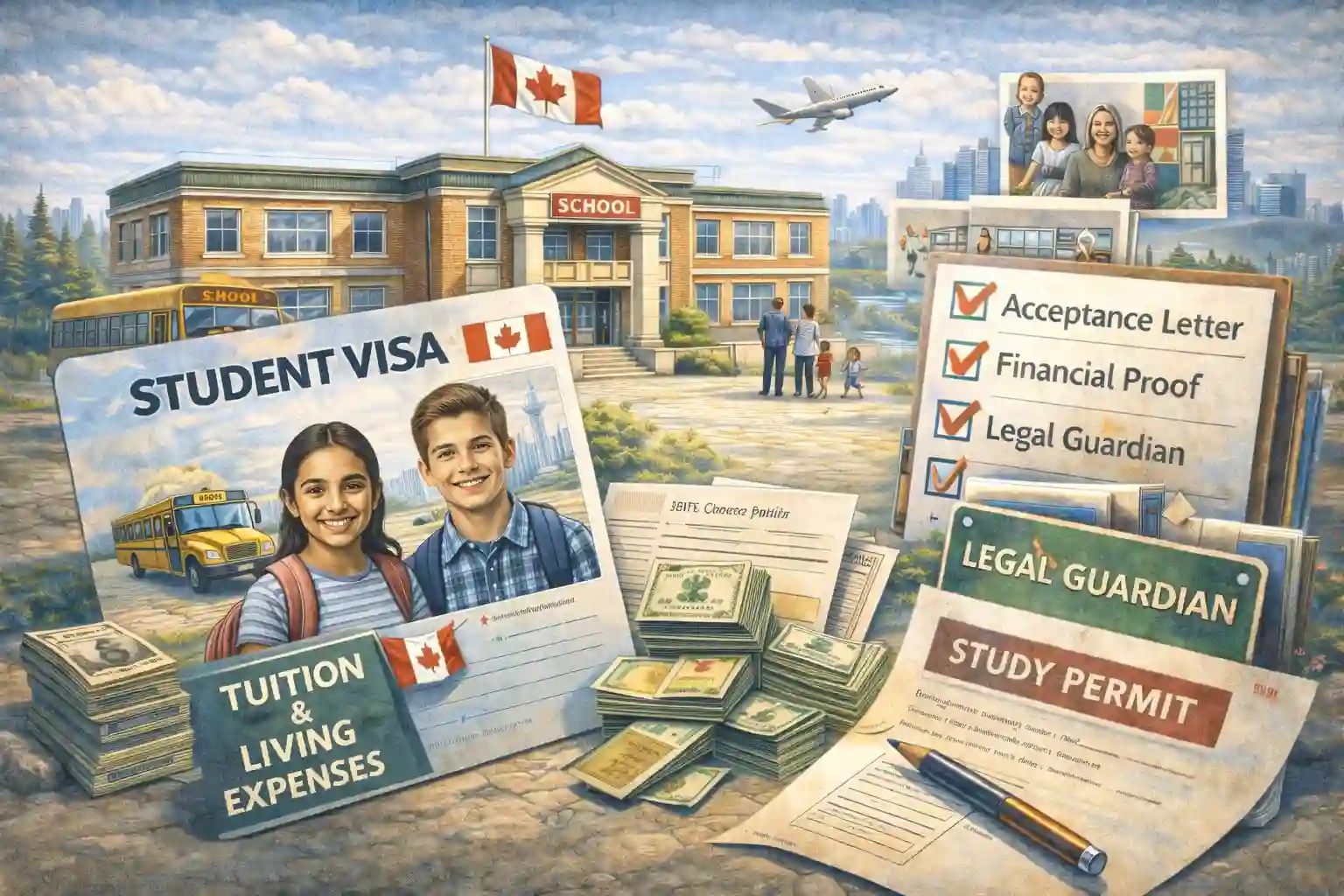
Canadian student visa for Canadian schools
To get a Canadian student visa, you must meet the following conditions
Having acceptance from Canadian schools
Having sufficient financial means
Being a maximum of 18 years old
Convincing the officer to return to the home country
Having parents or a custodian
accompany the student
Being physically healthy
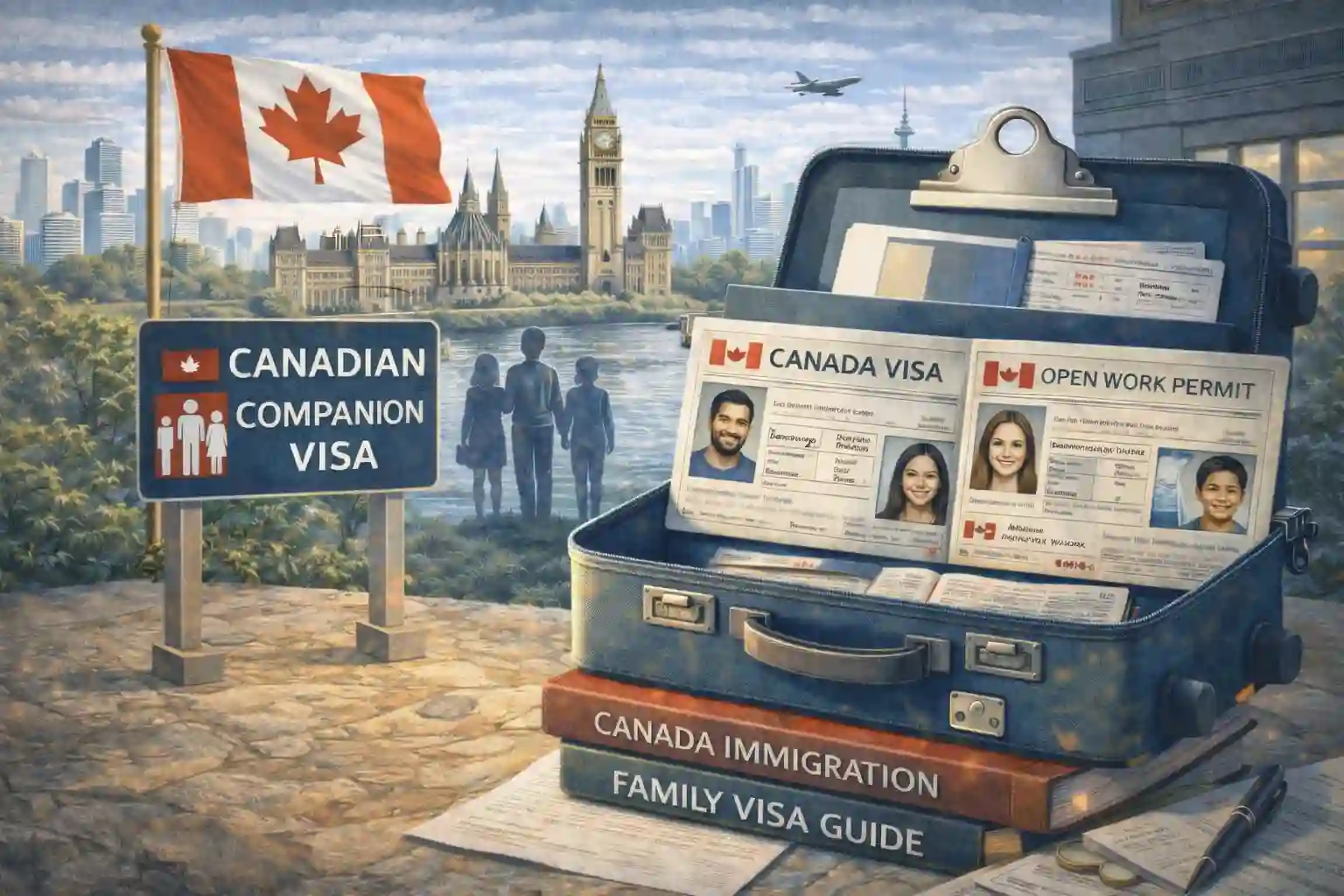
Canadian companion visa
If you fall into one of the 3 categories below, you will be eligible for a study permit visa for Canada as a tourist or worker
If you are the spouse of an applicant or holder of a Canadian student visa
If you are a dependent child of an applicant or holder of a Canadian student visa
If you are the parents of an applicant or holder of a Canadian student visa
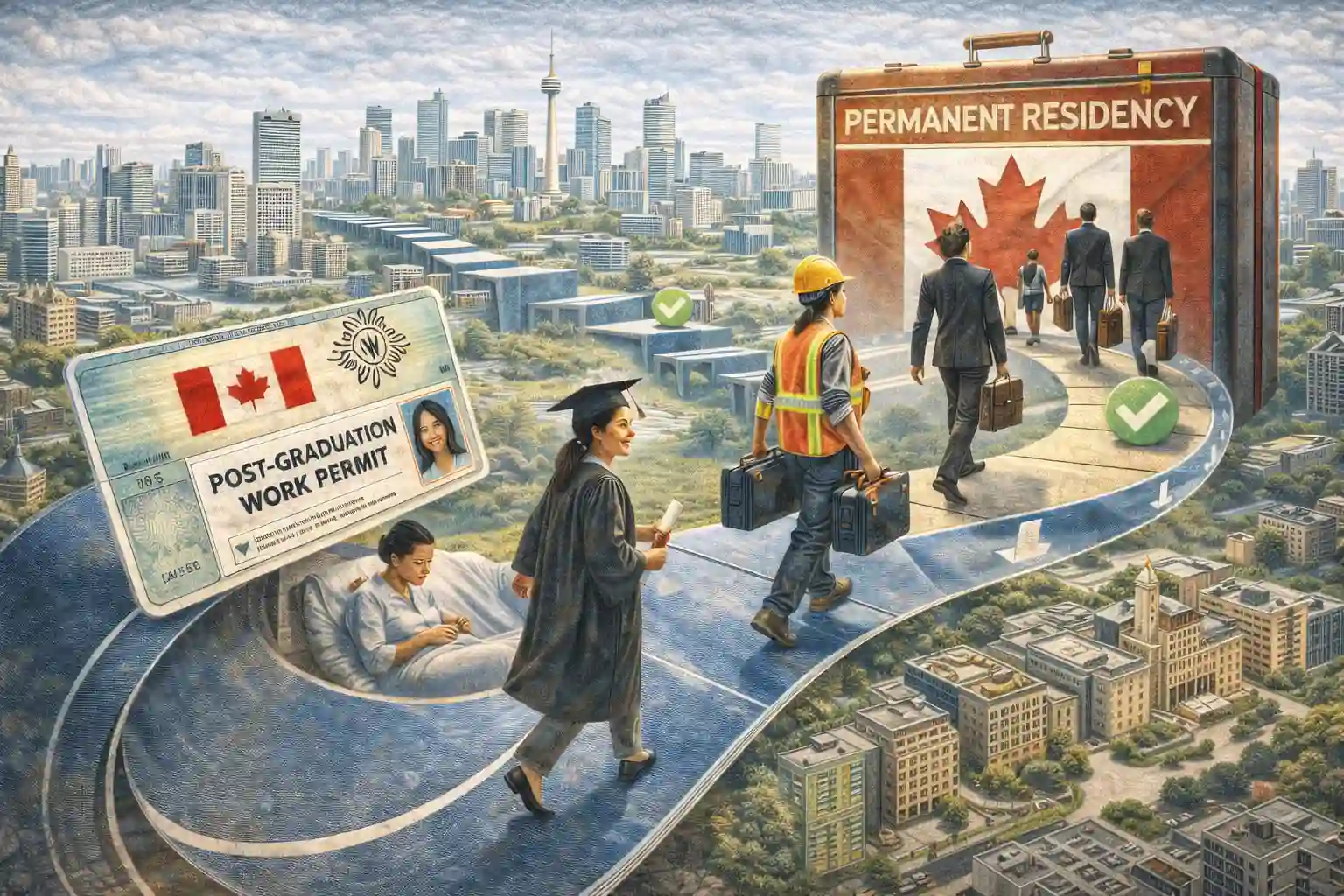
Work visa after studying in Canada
One of the major advantages of studying abroad in Canada is that after graduating from one of the public/private universities or colleges in Canada with a DLI number, you do not need to leave the country. You can stay and work in Canada for up to 3 years by obtaining a Post Graduate Work Permit (PGWP) after your studies.
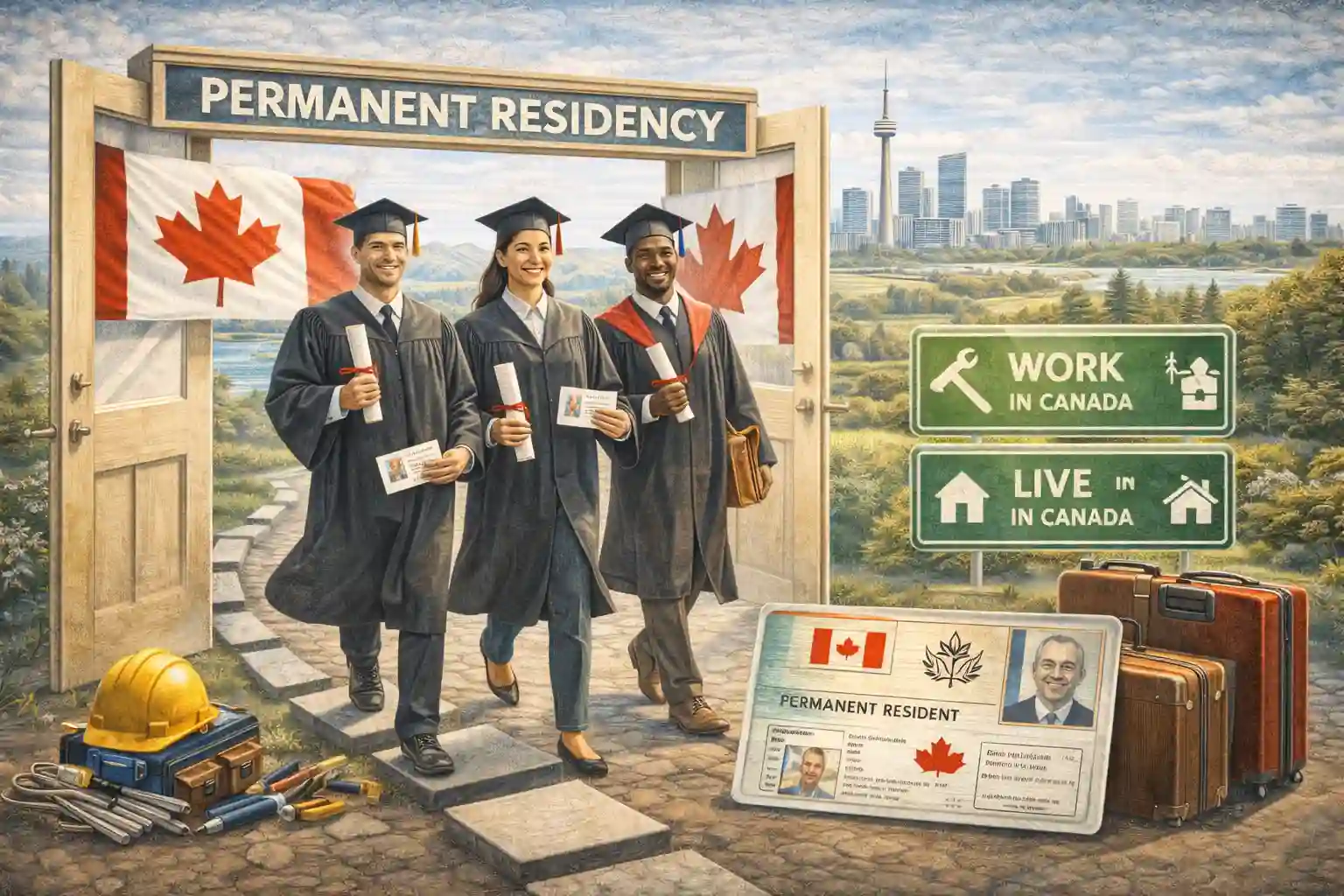
Permanent residence after studying in Canada
If you have completed your studies at a DLI (Designated Learning Institution) in Canada and intend to stay in Canada and obtain permanent residency after your studies, this can be done through federal pathways for permanent residency that are common across all provinces, as well as through provincial pathways for obtaining permanent residency in Canada.

Canadian study visa refusal
One of the unfortunate events in life for someone who has applied for a study visa to Canada is receiving a negative response from the Canadian embassy and being rejected for the visa. In this article, we discuss this topic in more detail. You can also find useful information regarding the steps to take after a rejection and solutions to overcome it.
Frequently asked questions
Is it hard to study in Canada?
The answer to this question depends on your circumstances and abilities. If you have been an active and diligent student in the past, you will likely be able to overcome the challenges and difficulties of studying in Canada as well. One important factor is having good language skills. All courses in Canada are taught in English or French. Therefore, if your language proficiency is not good, you will face more difficulties.
How is student work while studying in Canada?
In Canada, international students are allowed to work up to 24 hours per week during academic sessions. During official breaks such as summer holidays or winter vacations, students can work full-time with no hour limits.
For example, if you earn a minimum wage of $17.85 per hour, combining part-time work during semesters with full-time work during breaks, you can make approximately $20,000 to $30,000 CAD per year. This income can cover a significant portion of your tuition fees and living expenses.
Read more on the Work While Studying in Canada page.
How long does the entire process of study immigration to Canada take?
The process of obtaining a study permit for Canada will take 2 to 4 months. The visa process will also take 2 to 4 months. Of course, these timelines are under the best conditions, and unfortunately, the world does not always assist us in the way we want.
What are the best fields of study for obtaining permanent residency in Canada?
The Express Entry system, which manages Canada’s permanent residency programs, has focused in 2023 on individuals who have expertise and experience in one of the following fields:
Health
Science, Technology, Engineering, and Mathematics
Transportation
Agriculture and Food Industries
Does the master's program need to be related to my bachelor's degree?
It should be somewhat related, unless you pursue a career in management.
If I drop out, what will happen to my visa?
The result of dropping out is not the same in all cases. You may not have any issues regarding your stay in Canada until the end of your study permit, but you will definitely face problems when it comes time to renew your study permit. However, if you are unlucky, the university may communicate with the Canadian immigration office during your studies, and you may have to leave Canada.
Is it possible to drop out of school and work in Canada?
You will not have the option to drop out under normal circumstances unless you change your Canadian study visa to another type of visa. For example, you could obtain a type of permanent residency or, after signing a contract and applying for the necessary permits, get a work visa. If you marry someone who has a study, work, or permanent residency status, the conditions will also be favorable.
What are the conditions of studying in language courses?
It’s not possible for those who need to get a student visa for Canada to study in language courses, and we recommend that you don’t trust institutions or consultants who promise you this because, right now, there’s no way to obtain a student visa for language courses. RainCity does not provide services in this area because the outcome will be negative. There are opportunists who usually ask you for money to secure admission to language courses while they know very well that the embassy won’t be issuing visas for these courses.
How much does a language class cost in Canada?
Tuition fees for language institutions in Canada vary from one another.
Here, we mention the tuition fees for language institutions in some of Canada’s major cities:
Toronto: 12-week English language course = 3,500 Canadian dollars
Quebec City: 12-week French language course = 3,570 Canadian dollars
Vancouver: 12-week English language course = 4,000 Canadian dollars
Calgary: 12-week French language course = 3,400 Canadian dollars
I do not have a language certificate. I intend to apply in Canada and my plan is to learn the language in Canada. It is possible?
Whether you can take action without a language certificate depends on your field of study. In some fields, this is possible, while in others, you definitely need to have a language certificate. Don’t forget that having a strong language skill will be key to your success.
What are the different levels of education in Canada?
Canada’s education system has different levels of schooling, some of which are not found in the Iranian education system. Generally, the educational levels in Canada range from preschool to university, including: kindergarten, preschool, elementary, secondary, diploma, bachelor’s, master’s, and doctorate. We have explained each educational level on the page dedicated to Canada’s educational programs.
What are the age requirements for studying in Canada?
The relationship between age and applying
When it comes to applying, your age won’t create any limitations for you, and usually, educational institutions in Canada cannot reject someone just because of their age; doing so would be considered discrimination, which is a crime in Canada. So, after the application and acceptance stages, we move through without any hassle. The bad news is that even if you get accepted into McGill University, it won’t matter if you don’t have a visa. The Canadian visa is a bridge that all applicants must cross, and there’s no alternative route.
The relationship between age and visa
Your age directly affects the likelihood of getting a visa. There needs to be a logical relationship between the level of education you’re applying for and your age.
For example, if you’re 40 and want to study at the bachelor’s or diploma level at college, your student visa application will likely be rejected because, from the perspective of a Canadian immigration officer, studying at these levels at age 40 doesn’t make sense, as being older could imply that the person’s true goal isn’t education.
Of course, age alone can’t be a reason for rejection. An immigration officer doesn’t have the authority to reject a study visa application solely based on the applicant’s age, as that too would be considered discrimination and is illegal. However, an immigration officer has as much power as the Minister of Immigration. The officer ultimately decides whether a visa gets issued or not. So, if they see someone with an older age applying for lower educational levels, this could influence the outcome of the applicant’s visa.
What are the best cities in Canada for studying?
The QS website has listed 5 Canadian cities as the best places for international students to study and live, based on factors like affordability, favorable conditions, and the perspectives of current students in Canada:
Montreal
Toronto
Vancouver
Ottawa
Quebec City
Which Canadian province should I choose to study in?
Out of 10 provinces, six different time zones, countless cities and universities—what would you prefer? What’s your priority?
Be very careful! This isn’t a place for trial and error. Making the wrong choice of province could complicate your path to permanent residency in Canada after studying. On the other hand, making the right choice could make your life a hundred times easier. So don’t take risks; study the study conditions in each of Canada’s provinces before making the right decision, which we’ve detailed in the links below.
Studying in British Columbia
Studying in Alberta
Studying in Saskatchewan
Studying in Manitoba
Studying in Ontario
Studying in Quebec
Studying in Prince Edward Island
Studying in New Brunswick
Studying in Nova Scotia
Studying in Newfoundland and Labrador
